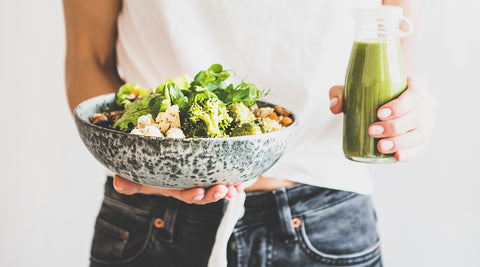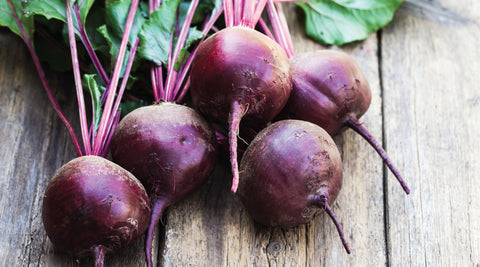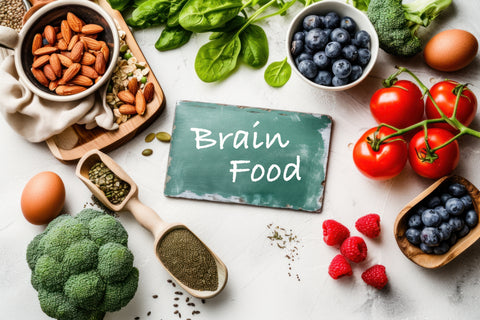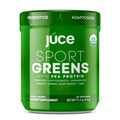Welcome to the (not-so) Wonderful World of Bloat
Bloat is a condition that makes your belly feel full and tight, often due to excess gas. The symptoms include distension, feelings of pressure, or digestive discomfort.
Most people consider bloat to be merely uncomfortable or embarrassing, especially if you’re doing sprints to the bathroom or dealing with an excess of gas. However, it might be a bigger problem than you think.
Who is Most Susceptible to Bloat?
No one is immune to bloat. In an average week in the U.S., 1 in 7 adults experience this condition. That’s 14 percent of the entire population, leading many to consider this a modern epidemic. And those numbers are sadly on the rise.
The journal Clinical Gastroenterology and Hepatology interviewed 88,795 adults. More than half of those who deal with bloat said they do not seek medical care, while 8 percent of that group said they didn’t feel comfortable talking about it with their doctor. But that doesn’t mean you can’t “doctor” yourself, which is the whole point of this post. But more on that in a minute.
For the women reading this, you may have noticed that the men in your life rarely complain about bloat or even know what it is. Rest assured, you’re not imagining this.
According to the American College of Gastroenterology, women are more likely to experience chronic constipation than men. And most notably, women experience irritable bowel syndrome (IBS) at a rate of 2 to 6 times that of men.
These digestive issues are the main reason bloating occurs in both men and women. But let’s look at why women suffer from bloat more than men for a moment.
There are four main reasons for this:
- Hormones: It’s common for women to experience diarrhea, nausea, and bloating during their periods. And according to a 2009 study in Gender Medicine, these gastrointestinal symptoms commonly flare up during menses and early menopause, which are times when ovarian hormones drop.
- Slow stomach emptying: For women, the food in their stomachs empties more slowly into their intestines. This sluggish digestion can result in bloating or nausea.
- Slow colon emptying: Unfortunately, your large intestines aren’t helping either, as the work they do is also slower than in men. At this stage of the food journey through the body, slow digestion results in constipation, another key factor in bloat.
- Mind-gut connection: Women on a global scale experience higher rates of both depression and anxiety, according to the World Health Organization. Nerves in your intestine are constantly communicating with your brain via the vagus nerve. When your brain feels like something is wrong, your gut usually feels it first.
How do these digestive disorders contribute to bloat?
Constipation contributes to bloating and abdominal pain, which is something you probably know or have experienced. But do you know why? As your stool stays in your colon longer than nature intended, the more time bacteria have to ferment what's there, resulting in more gas and bloating.Other digestive conditions that can result in bloat are:
- Gut sensitivity: IBS is also a growing problem and is more common in women.
- Small intestinal bacterial overgrowth (SIBO).
- Gynecological conditions.
- An imbalance in gut bacteria—your microbiome.
- Gastroparesis.
What does my microbiome have to do with bloating?
It’s not that surprising that the modern world is making us sicker than ever. Poor diets, high stress, excessive medication use, and exposure to toxins and pollutants are the main drivers of digestive conditions, All of these also negatively impact your microbiome.There are trillions of healthy and unhealthy bacteria that compete in your digestive tract—known as your microbiome—and when the bad bacteria outweigh the good, you guessed it, bloating. Plus, many other problems.
We are just beginning to understand this delicate balance and how vital our microbiome is to overall health and especially digestive health. However, there are some things you can do right now to ensure you have enough good bacteria to balance out the bad.
- Get more probiotics into your diet. Probiotics are the good bacteria we all need more of. You can take a probiotic supplement or if you’re a natural health superstar, seek out foods that provide them, like kimchi, sauerkraut, fermented pickles, yogurt, and kefir.
- Eat more foods rich in fiber. Improving your diet, more than anything else, will put you on the road to eliminating bloat from your life. And since your digestive system is already sluggish (for the women reading this), fiber is the solution thanks to its ability to keep things flowing properly.
- Drink plenty of water and eat more water-rich foods. Fiber relies on water to do its job properly. However, being well-hydrated is an easy and natural way to relieve the effects of bloating with or without fiber. As for those water-rich foods, they typically come loaded with electrolytes and beneficial enzymes, and both are vital for preventing and eliminating bloat.
- Get more herbs and spices into your diet. Herbs are pound-for-pound the healthiest foods on the planet. Digestion-soothing herbs like ginger, dandelion, aloe vera, and fennel have been used for thousands of years to soothe an uncomfortable and problematic gut.
- Get more exercise and movement. Exercise is a natural remedy for constipation, as it promotes better circulation of blood and lymphatic fluid. It essentially detoxes your system. Just make sure you don’t overdo it and put undue strain and stress on your body. Listen to your body and you’ll be fine.
- Reduce stress. When it comes to health in general, this is becoming a no-brainer. When you feel stressed or anxious, where do you feel it first? That’s right—you’re gut (the gut-brain connection)—which is why having a “gut feeling” is common.
Getting back to diet for a second, there are also some foods that you should avoid if bloat is a problem, and these include:
- Sugar and sweetened snacks, as sugar can increase fermentation in the body and contribute to candida and inflammation.
- Heavily processed dairy products that have artificial ingredients and have been stripped of their enzymes thanks to excessive pasteurization.
- Refined grains; we all know about the effects of gluten in 2023.
- Difficult to digest vegetables if you have a sensitive gut and need to follow a FODMAP diet.
- Beans and legumes for the obvious digestion problems that these cause; soak and ferment these if you insist on eating them.
- Carbonated drinks.
- Chewing gum, as this activates your enzymes when they’re not needed and depletes your body of them for when you do need them.
- Artificial sweeteners, which we should all be avoiding like the plague to end all plagues.
A potent weapon in your bloat prevention plan
It’s no surprise that when we talk of digestive health, and particularly bloat, a big part of that is diet related. And it’s pretty simple: Put more good foods into your body and eliminate more of the bad.We know that eating healthy can be very time-consuming, which is one of the reasons JÚCE has become so popular. It takes no time at all to put a host of beneficial nutrients into your body, regardless of how busy you are.
However, when it comes to bloat prevention, there is one product that outshines the rest … JÚCE Greens Daily Superfood.
Imagine getting 77 superfoods that are packed with essential vitamins, minerals, fiber, and antioxidants. Now imagine drinking those down in minutes and in a bioavailable form.
JÚCE Daily Greens Superfood has ingredients curated to be gut healthy and fantastic at cleansing and detoxification. It’s loaded with greens, grasses, and fiber, contains detoxifying herbs and mushrooms for immune support; and it has prebiotics, probiotics, and digestive enzymes to help you maintain a healthy gut biome.
Check out JUCE Greens Daily Superfood today. You can end your war against bloat once and for all.
RELATED ARTICLES
Change Your Gut Biome. Change Your Life!
ABOUT THE AUTHOR
Nick Mistretta is a freelance copywriter, content marketer, and author of the ebook, 25 Superfoods For Super Health. He helps small businesses turn strangers into friends, friends into customers, and customers into loyal customers.
- Prebiotics support healthy nutrient absorption & help microbiome flourish in the gut.
- Probiotics strengthen the immune system and help to restore & balance gut flora.
- Enzymes promote digestive health.
- Key fruits and vegetables provide nutrients vital to help lower the risk of disease and maintain a healthy body.
- Plant-based fiber aids digestion and combats bloating.




